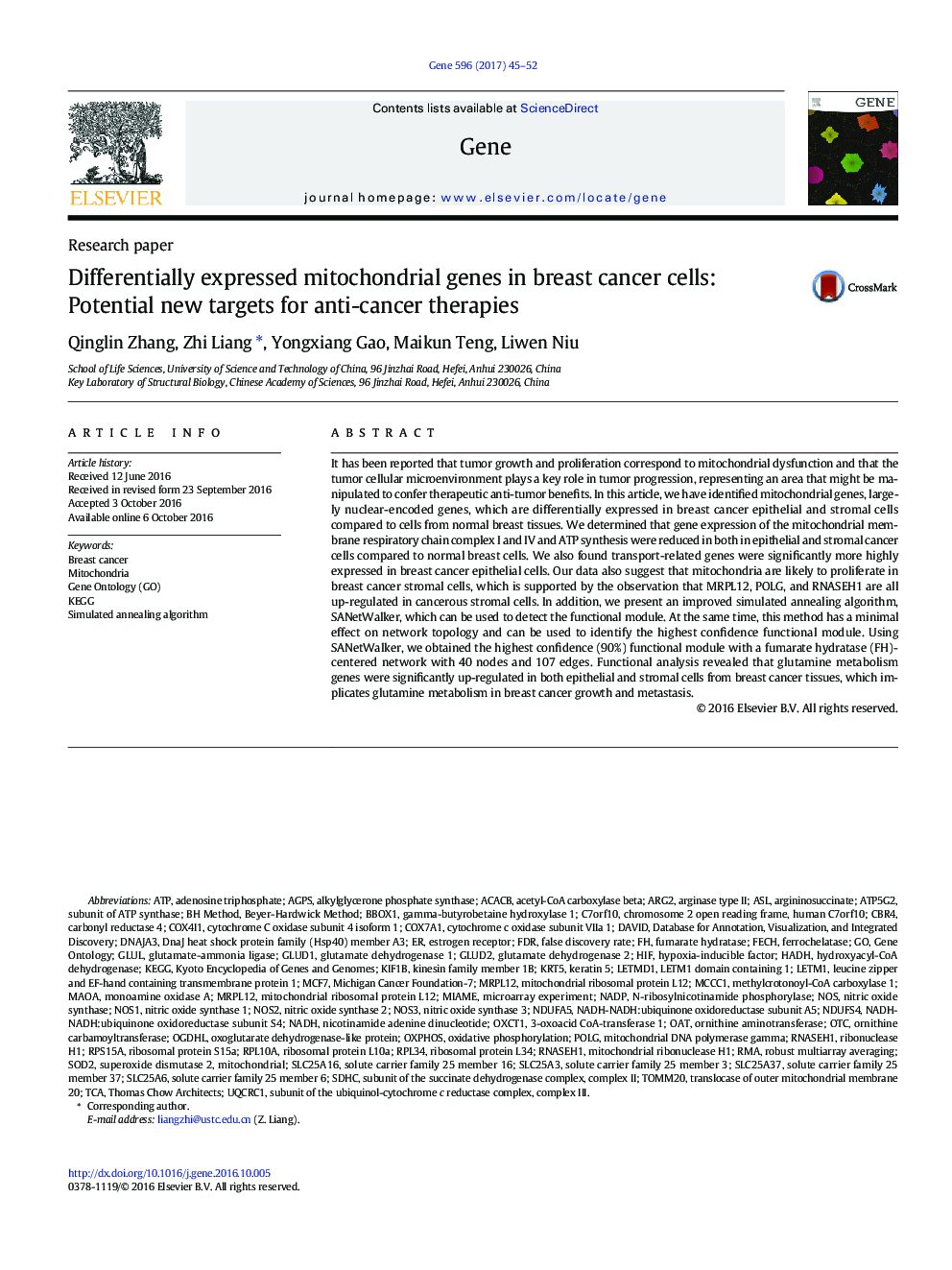| کد مقاله | کد نشریه | سال انتشار | مقاله انگلیسی | نسخه تمام متن |
|---|---|---|---|---|
| 5589918 | 1569840 | 2017 | 8 صفحه PDF | دانلود رایگان |
• Aerobic mitochondrial respiration may be impaired in breast cancer cells.
• Glutamine metabolism is up-regulated in breast cancer versus healthy cells.
• Our new SANetWalker algorithm operates at the highest confidence interval.
• SANetWalker is a valuable tool that may enable therapeutic advances for cancer.
It has been reported that tumor growth and proliferation correspond to mitochondrial dysfunction and that the tumor cellular microenvironment plays a key role in tumor progression, representing an area that might be manipulated to confer therapeutic anti-tumor benefits. In this article, we have identified mitochondrial genes, largely nuclear-encoded genes, which are differentially expressed in breast cancer epithelial and stromal cells compared to cells from normal breast tissues. We determined that gene expression of the mitochondrial membrane respiratory chain complex I and IV and ATP synthesis were reduced in both in epithelial and stromal cancer cells compared to normal breast cells. We also found transport-related genes were significantly more highly expressed in breast cancer epithelial cells. Our data also suggest that mitochondria are likely to proliferate in breast cancer stromal cells, which is supported by the observation that MRPL12, POLG, and RNASEH1 are all up-regulated in cancerous stromal cells. In addition, we present an improved simulated annealing algorithm, SANetWalker, which can be used to detect the functional module. At the same time, this method has a minimal effect on network topology and can be used to identify the highest confidence functional module. Using SANetWalker, we obtained the highest confidence (90%) functional module with a fumarate hydratase (FH)-centered network with 40 nodes and 107 edges. Functional analysis revealed that glutamine metabolism genes were significantly up-regulated in both epithelial and stromal cells from breast cancer tissues, which implicates glutamine metabolism in breast cancer growth and metastasis.
Journal: Gene - Volume 596, 5 January 2017, Pages 45–52
